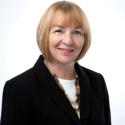2024 Pastoral Counsellors Network
- Image

The European Pastoral Counsellors Network is for leaders involved in pastoral care or personal discipleship ministries. The Network will focus on common pastoral issues with the aim of building basic counselling skills grounded in a biblical understanding of, and approach to, the human heart. This year’s programme focuses on the character and spiritual life of the counsellor, understanding how to truly care for those who experience evil and suffering, discipling the whole person, the power of the relationship in counselling, and other topics relevant to those involved in pastoral care and discipleship.
What Network Participants Are Saying
- "Being in the Forum’s Pastoral Counsellors Network has been an incredible experience. It has been so helpful because I spend my time working with elders, people in the hospital, and also discipling young people. I have been blessed by the many brothers and sisters I have met, by connecting with them, hearing their stories, and receiving their advice."
- Emanuela Marinkovic, Medical Student, Bosnia and Herzegovina - "I came to the European Leadership Forum to learn more about how to help people in need of counselling. We went through a difficult situation in my church that involved spiritual abuse. The Forum has helped me to understand how to relate to people in a deeper way, especially those who need spiritual and emotional healing, and how to point them to Christ the Healer."
- Samuel Carp, Youth Leader, Romania
Applicants should be leaders involved in pastoral care or personal discipleship ministries. The Network will focus on common pastoral issues, with the aim of building basic pastoral skills grounded in a biblical understanding and approach to the human heart.
Network Leadership
Network Speakers
Snezana Andjelic grew up in a Christian home in Yugoslavia, which is today's Serbia. She studied psychology in Germany and trauma in the USA. Snezana is a Gestalt psychotherapist and children’s psychoanalyst specialising in trauma. At the moment, she is working as a Trauma Care Advisor for the… Read more
Paul Coulter lives in Lisburn, Northern Ireland, with his Chinese Malaysian wife, Gar-Ling, and their two teenage children. He holds degrees in medical genetics, medicine and theology (PhD). Having previously served as a medical doctor, cross-cultural pastor and lecturer in practical theology… Read more
Nicolene Joubert, PhD, is an Adjunct Professor of Christian Psychology and Counseling at Houston Christian University. She holds a PhD in Psychology (North-West University, South Africa), a Master of Arts in Theological Studies (Trinity International University, Ill.), and a Master of Arts… Read more
Dr. John Michael has been helping couples and families since 1993. John finished his Master’s Degree at Denver Seminary in Colorado and began working as a social worker and counsellor. Throughout the years of helping people, Dr. Michael completed his Doctorate in Psychology at Kennedy Western… Read more
Jelena Sivulka hails from Serbia, where she was born and raised. She obtained her master's degrees in psychology and theology from her homeland. Thirty years ago, she embraced Christianity, igniting a passion for ministry alongside her husband Greg. Together, they have been instrumental in… Read more
Helen Thorne-Allenson is the Director of Training and Resources at Biblical Counselling UK. She is an experienced speaker and author whose recent books include "Mental Health and Your Church," "Hope in an Anxious World," and "5 Things to Pray for a Suffering Friend.… Read more
Network Programme
Sunday, 26 May
A traumatic experience is unique and extremely powerful. Understanding trauma helps us recognize the behaviors of those who are deeply suffering. The impact of traumatic experience changes us forever. Approaching those who experience trauma requires knowledge and specific skills to which you will be introduced in this session.
Confusion about pastoral care abounds. On one hand, it may seem like a distraction from the urgent mission of the Church to make disciples of Jesus Christ and plant churches in post-Christian Europe. On the other hand, the term pastoral care is used in schools and some workplaces to describe care that is not rooted in Christian faith. In this session, we will seek to recover the historical meaning of pastoral care and its roots in Scripture with the aim of developing a vision for pastoral care shaped by the gospel which could be described as making disciples from people in need.
Monday, 27 May
Do you have clearly formulated assumptions when you enter a counselling session? Do you make decisions about treatment very swiftly? Professional, and pastoral counsellors generally enter the counselling relationship with certain assumptions. These assumptions may be known or implicit. They are necessary but may lead to presumptuous errors. Counsellors and therapists often make the mistake of “immediately” acting on the presenting problem because they assume they know what’s best for the client. Whole-person assessment focuses on the sharpening of observational, listening and probing skills. These skills provide a key to a deeper connection with the whole person presenting “a” problem and lead to more effective choices of interventions.
About 1 in 6 people seek help from a doctor about their anxiety – 1 in 3 people talk about feeling anxious day by day. In our churches and our communities, there will be many wrestling with the physical, spiritual, and social outworking of its pain. As Christians, we long to help, but what can we do? In this session, we will look at how God’s Word, God’s work and God’s people can all play their part in walking alongside those who suffer—and see how faith can bring real hope in an anxious world.
Tuesday, 28 May
As humans, we are impacted by the pain and suffering of others. God created us with the capacity to feel people’s pain. Exposure to a traumatized society puts us in danger of becoming traumatized ourselves. Feeling things we didn't experience means living the traumas of those we serve. In this session, we will talk about secondary trauma’s impact on Christian leaders and what practical things we can do to address compassion fatigue and burnout.
Pastoral care is shepherding care, and shepherds give guidance to their sheep. But many Christians are nervous about the idea of giving guidance to others. The influence of non-directive models of counselling and experiences of manipulative 'heavy shepherding' combine to feed our doubts. In this session, we will learn from Scripture that guidance is an essential aspect of pastoral care and also seek some practical principles to help ensure that we can give it without controlling people.
Wednesday, 29 May
How can we help those experiencing mental disorders make sense of their suffering without losing confidence in God's power and goodness? In what ways do our beliefs about why God allows suffering affect our relationship with God and our ability to find meaning and healing in suffering? In this session, we will explore these questions and consider the crucial role that the church plays in helping those who suffer find hope and healing.
Proverbs 4:23 instructs us to “Guard our hearts” and reveals that the heart of a person is the place from which the issues of life flow. In this session, we will explore how identifying emotions and embracing their impact can lead to intimacy with God and intimacy in our marriage relationships. We will also uncover how the ways in which we work with our own emotions impact the cycles of our relationships. This session will also address some keys to help leaders care for the marriages of others.






